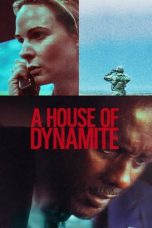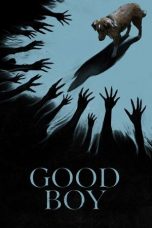Point Blank (1967) Movie Review: A Gritty Classic of Neo-Noir Cinema
Point Blank, directed by John Boorman and released in 1967, is a seminal film in the neo-noir genre that has influenced countless films and filmmakers. With its innovative style, compelling narrative, and strong performances, Point Blank stands out as a classic of 1960s cinema, offering a dark and stylish exploration of revenge and betrayal.
Plot Overview
The film centers on Walker (Lee Marvin), a tough and relentless antihero who is double-crossed by his criminal associates after a heist goes awry. Walker is left for dead but survives and embarks on a mission to retrieve the money stolen during the heist and seek revenge on those who betrayed him.
Walker’s journey through a corrupt and treacherous world is marked by his single-minded determination and brutal efficiency. As he pursues his former partners, he encounters a series of obstacles and confrontations, all while unraveling the deeper layers of the betrayal that led to his predicament. The film’s narrative explores themes of vengeance, loyalty, and the cost of a life lived outside the law.
Characters and Performances
Lee Marvin stars as Walker, delivering a powerful and memorable performance. Marvin’s portrayal of Walker is marked by a steely intensity and an unwavering sense of purpose. His character is both enigmatic and formidable, capturing the essence of the neo-noir antihero with a combination of charisma and menace.
Angie Dickinson plays Lynne, Walker’s estranged wife, who becomes entangled in his quest for revenge. Dickinson’s performance adds a layer of emotional complexity to the film, highlighting the personal stakes involved in Walker’s journey. Her interactions with Walker reveal the impact of his criminal lifestyle on those around him.
John Vernon appears as Brewster, one of Walker’s former associates and a key figure in the betrayal. Vernon’s performance adds to the film’s tension and sense of moral ambiguity, providing a formidable antagonist for Walker’s quest.
Keenan Wynn plays a supporting role as a corrupt police officer, contributing to the film’s atmosphere of deceit and corruption. Wynn’s performance enhances the film’s exploration of the morally ambiguous world that Walker navigates.
Direction and Cinematography
John Boorman’s direction of Point Blank is characterized by its innovative and stylish approach. Boorman’s use of non-linear storytelling, striking visuals, and experimental techniques creates a film that is both visually arresting and narratively compelling. His direction brings a unique and avant-garde sensibility to the neo-noir genre.
The cinematography, by Adam Greenberg, plays a crucial role in shaping the film’s distinctive style. Greenberg’s use of bold, high-contrast lighting, unconventional camera angles, and dynamic compositions enhances the film’s noir atmosphere. The cinematography effectively captures the gritty and stylized world of the film, contributing to its overall sense of tension and intrigue.
Themes and Symbolism
Point Blank explores themes of revenge, betrayal, and existential despair. The film’s narrative revolves around Walker’s quest for vengeance and his struggle to reclaim his stolen money. The theme of betrayal is central to the story, highlighting the personal and moral consequences of double-crossing one’s associates.
The film also delves into the idea of identity and the cost of living a criminal life. Walker’s pursuit of revenge is not just about recovering stolen money but also about confronting the deeper implications of his own choices and actions. The film’s non-linear structure and symbolic imagery underscore the complexity of Walker’s journey and the moral ambiguity of his quest.
Reception and Legacy
Point Blank received positive reviews from critics upon its release, with particular praise for its innovative style, strong performances, and gripping narrative. The film was noted for its influence on the neo-noir genre and its impact on subsequent films and filmmakers.
The film has since gained recognition as a classic of 1960s cinema and a seminal work in the neo-noir genre. Its stylistic innovations and exploration of complex themes have made it a lasting and influential entry in the world of film.
Where to Watch Point Blank Online
For those interested in watching Point Blank, it is available on several streaming platforms and rental services:
1. Amazon Prime Video
- Availability: Rent or Buy
- Price: Rent starting at $3.99; Purchase at $12.99
- Details: Available in HD with options to rent or buy.
2. Apple TV
- Availability: Rent or Buy
- Price: Rent starting at $3.99; Purchase at $12.99
- Details: Available for rent or purchase in HD.
3. Vudu
- Availability: Rent or Buy
- Price: Rent starting at $3.99; Purchase at $12.99
- Details: Available for streaming in HD with rental and purchase options.
4. Hulu
- Availability: Streaming with Subscription
- Details: Availability may vary, check Hulu’s library for current status.
Conclusion
Point Blank (1967) is a seminal film in the neo-noir genre, known for its stylish direction, innovative storytelling, and strong performances. Directed by John Boorman and featuring a memorable performance by Lee Marvin, the film offers a gripping exploration of revenge, betrayal, and the moral consequences of a criminal life. With its unique visual style and compelling narrative, Point Blank remains a classic and influential entry in the world of cinema.
















